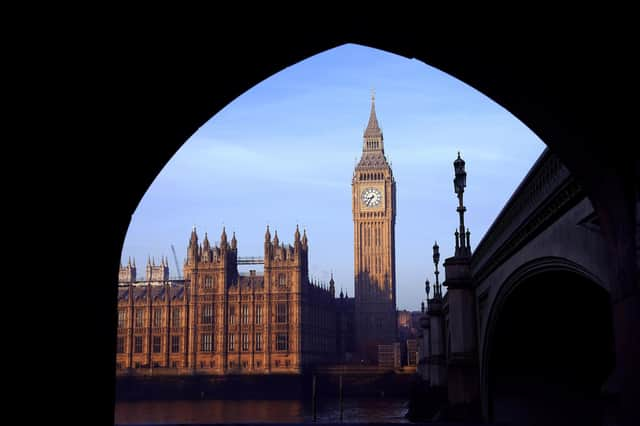Letter: Preliminary border poll at the next General Election could settle the future of the Union


The current debate on the timing of a border poll for Northern Ireland is similar to the one on Scottish independence and begs a question.
How do the voters of a member nation of a supposedly voluntary union trigger a process of orderly secession from that union, if a majority so wish?
Advertisement
Hide AdAdvertisement
Hide AdGiven that referenda are lengthy, divisive and expensive, the Northern Irish surely need an enabling ‘Stage 1’ mechanism of some sort. Accordingly, I propose that NI voters be given the power to decide when, if ever, there should be a referendum on leaving the UK.


This could be achieved by Westminster’s legislating to conduct a ‘preliminary poll’ of Northern Irish voters coterminous with the next UK general election - such a poll to determine whether voters in the province want a referendum on their future in the new Parliament, with such legislation embodying provision for a referendum, should voters want one.
I believe this additional poll is in line with the provisions of the Good Friday Agreement and could become a permanent feature of all future Westminster elections in NI.
Such a poll could also be adopted for use in Scotland and Wales.
Advertisement
Hide AdAdvertisement
Hide AdA Westminster-approved ‘preliminary poll’ of this nature would settle the future of the Union for the foreseeable future by putting the voters of the Celtic nations, rather than politicians, in the driving seat.
It would enable NI voters of every political persuasion on both sides of the border debate to determine whether they want a referendum, and to make that decision in a considered and timely fashion at the same time as they were electing representatives to preside over the governance of the Union.
This proposal is being circulated as a way out of what might become a major constitutional crisis.
I believe Westminster should adopt it as a conciliatory, continuing and open-handed gesture, evidencing confidence in a Union where membership is nevertheless acknowledged to be voluntary.
David Green, Southport, Merseyside